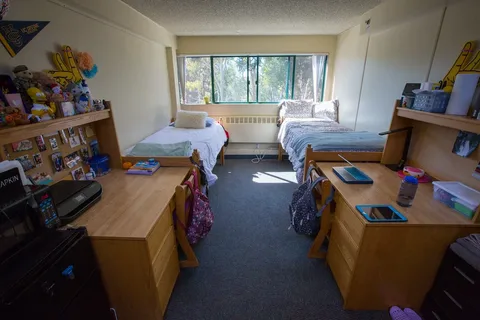UQ Housing Made Simple: From Dorms to Private Rentals
Australia is currently experiencing record-low vacancy rates in rental accommodation, especially in cities like Brisbane.
The University of Queensland (UQ) recently noted that this tight rental market was one of the drivers behind its plan to double its purpose-built on-campus student accommodation. For example, the 610-room Kev Carmody House opened in 2022, and achieved 100% occupancy, underscoring just how pressing the demand is.
If you’re entering UQ or moving campuses, understanding your housing options can save you stress, money, and time. From dorms to shared flats to private rentals, there are pros and cons to each route.
This article breaks down the main types of accommodation available, what to expect with each, and tips to make a smart housing decision.
On-Campus and UQ-Owned Residences
UQ offers a variety of student residences directly owned or operated by the university. These typically offer the convenience of proximity to campus, often with study spaces, communal kitchens, and support services. For many students—especially international or first-years—these residences reduce the burden of commuting. UQ recognizes the rental scarcity in Brisbane and has committed to expanding its on-campus housing to offer more affordable alternatives.
Pros:
- Walkability to classes, libraries, labs, and campus events
- Social environment: easier to make friends and get involved
- Simplified utilities and maintenance
Cons:
- Limited capacity and high demand → may apply early or wait
- Cost might be higher per square metre compared to share houses off-campus
- Less flexibility over roommates or lease terms
Private Rentals & Shared Accommodation
Off-campus rentals are popular. Many students opt for shared houses, flats, or units close to UQ’s St Lucia, Herston, Dutton Park, or Gatton campuses. UQ provides a platform—UQ Rentals—that connects students with private landlords, real estate agencies, and providers offering properties near campuses.
Pros:
- Potentially more options, more space, more privacy depending on budget
- Lower cost if sharing with roommates
- Freedom to choose lease length, location, and housing type
Cons:
- Commuting time and costs may increase
- Must manage utilities, upkeep, furniture, and landlord interactions
- Demand is high; vacancies are rare, so you’ll likely compete for good spots
Choosing What’s Right for You
When deciding between dorms or private rentals, consider these factors:
- Budget – Calculate all costs: rent, utilities, transport, food, internet.
- Commute & location – How long and how expensive will daily travel be? Proximity to campus matters for time and convenience.
- Lifestyle preference – Do you prefer quiet study time in a structured environment, or more freedom and flexibility?
- Lease & contracts – University housing usually has fixed terms; private rentals may have more variable options, but require care with inspection, condition, and bond.
Tips & Tricks for Snagging Good Housing
- Start early—apply for uq housing options on campus and keep an eye on UQ Rentals well before semester begins.
- Inspect properties in person to check condition, security, amenities, and cleanliness.
- Consider sharing—it can significantly reduce costs.
- Ask about furnished vs unfurnished options; moving furniture is time-consuming and expensive.
- Read contracts carefully: understand what’s included (maintenance, utilities, internet) and what you will be responsible for.
Finding housing at UQ doesn’t have to feel overwhelming. On-campus dorms offer security, proximity, and community, while private rentals widen your options and can save money when done wisely.
With Brisbane’s tight housing market and high demand for student-friendly dwellings, making informed choices early can make all the difference.
Whether you choose a dorm or a shared flat, it’s about balancing comfort, cost, and environment to fit your university experience.


